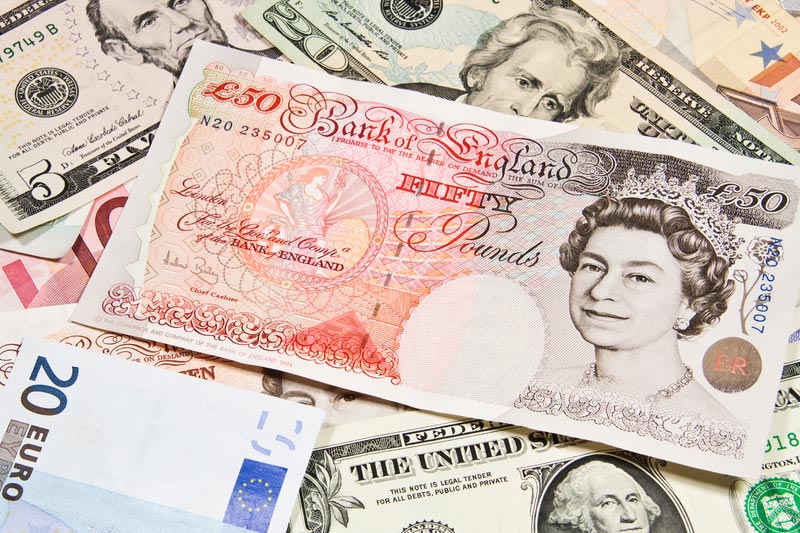Investing.com - The pound edged higher against the U.S. dollar on Tuesday, after the release of globally positive U.S. economic reports, although the pound's gains were expected to remain limited by a downbeat U.K. inflation report published earlier in the day.
GBP/USD hit 1.6531 during U.S. morning trade, the session high; the pair subsequently consolidated at 1.6531, adding 0.20%.
Cable was likely to find support at 1.6426, the low of February 12 and resistance at 1.6654, the high of March 19.
The Conference Board reported that its index of consumer confidence increased to 82.3 this month, the highest since January 2008, from 78.3 in February. Analysts had expected the index to tick up to 78.6.
The Commerce Department said new home sales fell by the most in five months in February, indicating continued weakness in the housing sector.
Sales of new homes fell by 3.3% in February to 440,000 units, the weakest level since last September. Market expectations had been for a decline of 4.9%. January's sales were revised down to a 455,000-unit pace from the previously reported 468,000-unit rate.
Separately, Standard & Poor’s with Case-Shiller said its house price index rose 13.2% in January from a year earlier, compared to forecasts for a 13.3% gain.
Earlier in the day, the Office for National Statistics said the annual rate of consumer price inflation slowed to 1.7% in February, in line with expectations, down from 1.9% in January.
January was the first time in more than four years that the U.K. inflation rate fell below the Bank of England’s 2% target.
Consumer prices rose 0.5% in February from a month earlier, in line with estimates.
Separately, the ONS said house prices across Britain rose 6.8% in the 12 months to January, up from 5.5% in December, the largest increase since August 2010.
Sterling was higher against the euro, with EUR/GBP dropping 0.52% to 0.8344.
The euro weakened after a senior European Central Bank official said the bank could use negative interest rates to counter the euro’s higher exchange rate.
ECB governing council member and Bundesbank chief Jens Weidmann said a negative deposit rate could be an appropriate way to address the impact of strong gains in the euro.
In addition, a report howed that the German Ifo business confidence index fell to 110.7 in March from 111.3 in February. It was the first decline in five months.
The expectations component of the index weakened as concerns over the impact of the Crimea crisis weighed, but the current assessment component continued to improve, rising to the highest level since April 2012.
